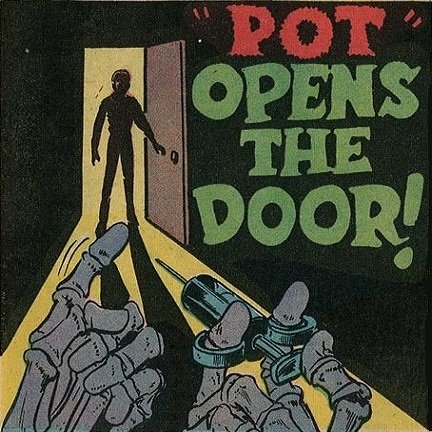Substance Abuse and Mental Health disorders are on the rise which begs the question of where it started. Was it genetic predisposition or environmental factors and social economic status that plagued many Americans with addiction?
Cannabis has been proven effective in minimizing the symptoms of withdrawal in addiction and detouring users from relapsing. There is statistically no connection of the theory that Cannabis use leads to more dangerous substance abuse.
The FDA’s new approval on 3 synthetic cannabinoid-containing medications and the ironic blatant denial that Cannabis is effective in treating medical ailments leaves us wondering what our government’s true motives are.
Government Propaganda and decades of Cannabis misinformation has lead to unwarranted scrutiny by the government and its affiliates.

To begin – some facts on Addiction and Drug Abuse
As more and more calls to 911 emerge for opiate overdoses, it makes us wonder where this epidemic started. It begins with a poor coping mechanism or adolescent rebellion, we’ve all been to at least one high school party with entirely too much alcohol available to vulnerable teenagers. While for most of us, it wasn’t uncommon to see a six pack in our parents fridge or a bottle of wine. However, a recent study shows that children born into alcoholic families are more than one half likely to abuse alcohol themselves.
Over sixty percent of the homeless population is struggling with either an Alcohol or Drug Addiction. These numbers tell us that the homeless are at significantly higher risk to develop a substance abuse problem than the general population. In turn, economic status may or may not play a role in the presence of addiction. Frequently, going from above the poverty line to homelessness is a result of substance abuse. It is noteworthy that over twenty five percent of homeless have some form of a mental health disorder.
The number of Americans diagnosed with a mental health disorder or substance abuse problem have climbed over 500% in the past 10 years, according to a new study. Addiction is believed to be a 50/50 ratio of environmental factors such as social economic status and genetic predisposition.
Illegitimacy of Cannabis Use Resulting in Addiction
In regards to Cannabis use resulting in a more severe addiction or drug problem, the statistics show no pattern of users moving on from Cannabis to use more serious drugs. Ironically, some advocates claim to use Cannabis as an “exit drug” to ease their symptoms of withdrawal and reduce the likelihood of returning to hard drugs. Most recently, the DEA silently removed a report from its website citing Cannabis as a gateway drug or that it causes severe psychosis or irreversible brain damage.
“Marijuana in its natural form is one of the safest therapeutically active substances known to man. By any measure of rational analysis marijuana can be safely used within the supervised routine of medical care.” -Judge Francis Young, DEA
The FDA’s highly controversial debate on Cannabis use and medical ailments is a one way street. Even though the FDA disagrees with Cannabis for medicinal uses, they recently approved 3 synthetic cannabinoid-containing medications for treating chemotherapy induced nausea, AIDS symptoms, and epilepsy. The FDA has blatantly denied the benefits of Cannabis consumption while freely prescribing medications that mimic the effects of the plant and its derivatives. Marinol, Syndros, and Cesamet are the three approved synthetic cannabinoid drugs on the market which have debilitating side effects such as:
- Seizures
- Hypertension or irregular heartbeat
- Elevated blood pressure
- Vomiting
- Chest Pain
- Kidney Damage
- Blackouts
- Headaches
- Psychosis
Reefer Madness – The movie that plagued the Cannabis industry
Before the mid 1930’s Cannabis use was approved for medicinal uses, it wasn’t until the Marijuana Tax Act of 1937 that the plant and its derivatives were regulated at a national level. Since then, our government has pushed Anti-Cannabis propaganda through multiple media outlets including the infamous movie Reefer Madness that was released between 1936 and 1940. While amusing, the movie severely misrepresented the use of Cannabis and pushed a government agenda claiming Cannabis use could cause a person to commit acts of violence, criminal negligence, suicide, etc. Reefer Madness portrayed an alarming misrepresentation of the effects of Cannabis use which was just one of the US Governments attempts to push a public agenda with propaganda.
The new year is right around the corner, and with time Cannabis Advocates can repair the damage many decades of improper education, and the stigma that comes along with the use of this plant recreationally and medically. While research shows Cannabis is not a gateway drug nor does it cause potential for addiction of harder substances, it is always recommended to use Cannabis responsibly and mindfully.

